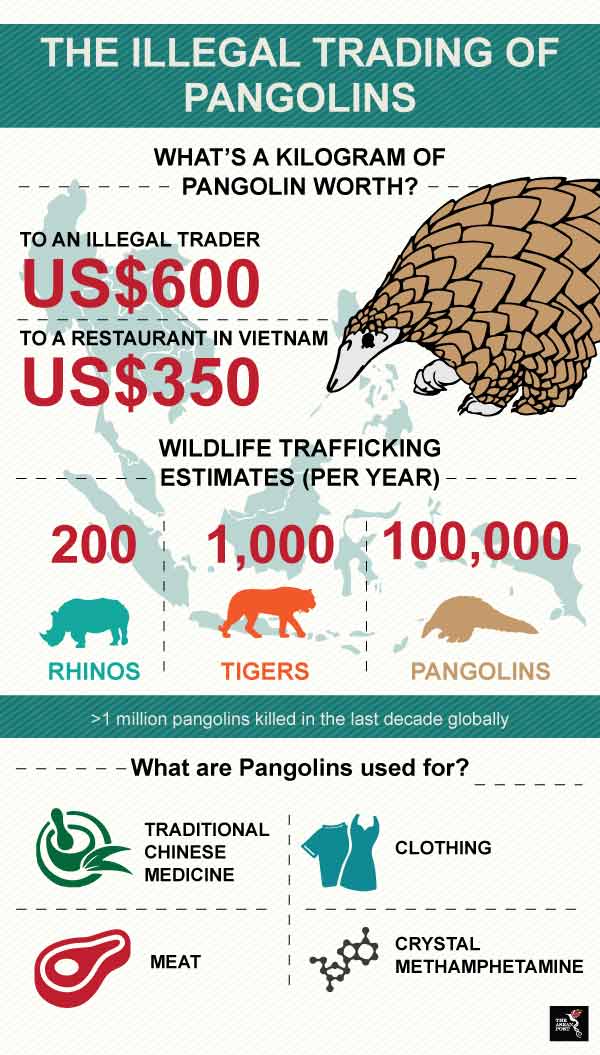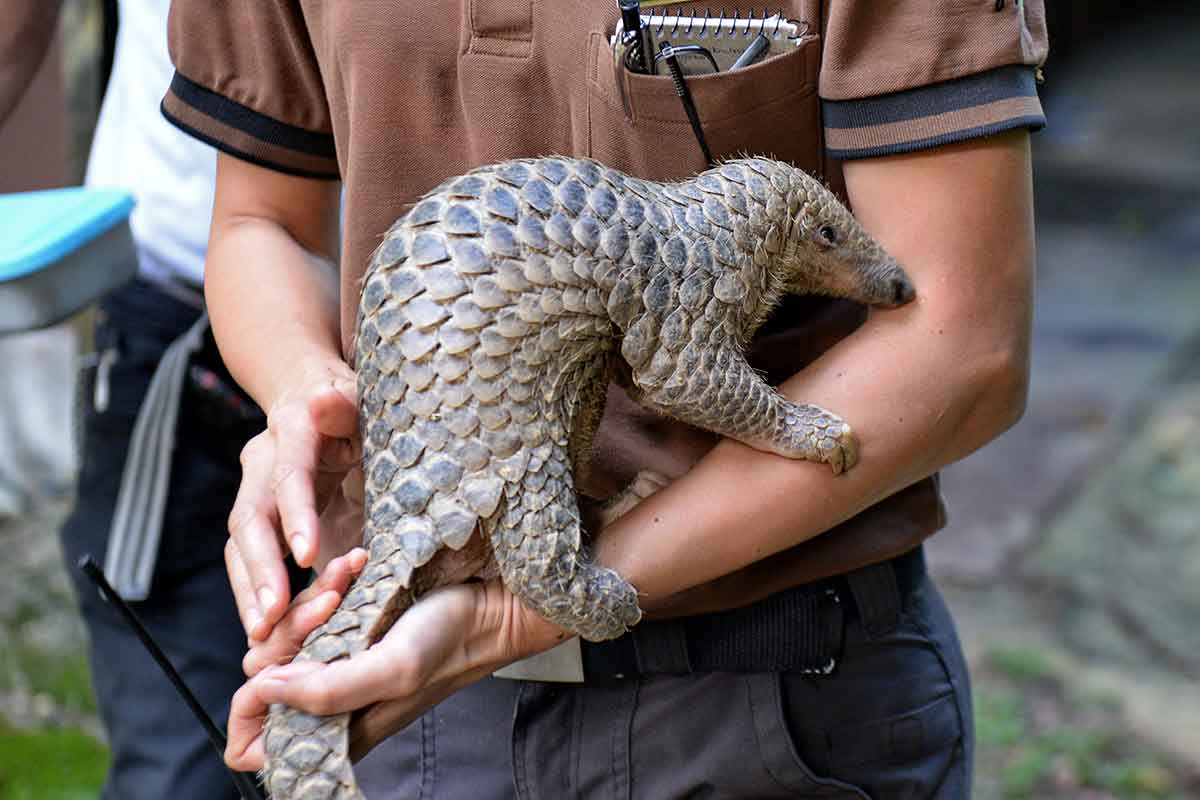Unprecedented seizures of pangolin scales in Singapore last month – when the island-state seized a world record 25.6 tonnes in five days – is drawing more attention to the trade of the little-known creature.
Said to be the most widely trafficked mammal in the world, all eight pangolin species – which are native to Asia and Africa – are now categorised as “vulnerable”, “endangered” or “critically endangered” according to the International Union for Conservation of Nature (IUCN) Red List of Endangered Species.
Four of the species found in Southeast Asia are largely concentrated in Indonesia while the other four can be found in Africa, but all of them are being threatened by the false belief that their scales can heal a multitude of diseases.
After seizing 12.9 tonnes of pangolin scales on 3 April, Singapore seized another 12.7 tonnes on 8 April. In both instances, the scales were in containers on their way to Vietnam from Nigeria. The previous record seizure of pangolin scales was in Shenzhen, China, in 2017, when 11.9 tonnes were seized. Altogether, it is estimated that the scales were from 38,000 pangolins and were worth US$76.5 million.

According to research conducted by wildlife trade monitoring network TRAFFIC, 20 tonnes of pangolins and their parts are being trafficked every year. However, due to the elusive nature of the shy and nocturnal pangolin, there is relatively little data on global population numbers.
“The sheer size of these two latest seizures is unprecedented and will undoubtedly prove a major setback to the traffickers concerned,” said Richard Thomas, the Global Communications Coordinator of monitoring network TRAFFIC. “The quantities of pangolins involved point to sourcing, processing and distribution on an industrial scale,” he added in comments to the media.
Malaysia also found itself in the pangolin spotlight in February when 29.8 tonnes of pangolin and pangolin products were seized. Meanwhile last December, Malaysia burned nearly 2.8 tonnes of seized pangolin scales worth US$9 million in a bid to combat illegal wildlife trafficking. Some 3,000 pangolins would have been killed to obtain the 2.8 tonnes of scales which arrived in three different shipments from Ghana and Cameroon.
And although there have been management efforts to conserve Indonesia’s natural richness, the country has long been recognised as a significant illegal wildlife trade hub in the thriving ASEAN black market.
Sunda pangolins in Indonesia are at risk of extinction because of an illicit trade that sees thousands of the critically endangered animals trafficked each year. The archipelagic nation, one of the last strongholds of the Sunda pangolin, has already lost up to 10,000 pangolins a year to illegal trade despite significant enforcement success.
Mapping Indonesian pangolin seizures from 2010 to 2015, researchers from TRAFFIC found an equivalent of 35,632 pangolins had been seized in 111 enforcement cases over the six-year period. Throughout the study period, the volume of pangolins and parts seized varied greatly, ranging from 2,436 to 10,857 pangolins per year.
TRAFFIC have also identified Sumatra as a hotspot of the trade which serves as a key link to smugglers in Malaysia and Singapore, where the animals were most often sent on to China and Vietnam. Domestic seizures accounted for 83 percent of the 111 cases studied. The authorities also identified or arrested a minimum of 127 suspects linked to those cases.
While Indonesia is a huge archipelagic nation with limited resources to monitor all the sea routes, TRAFFIC has advocated for increased monitoring and investigation as well as stronger multi-agency co-operation to address the illegal wildlife trade. Apart from that, TRAFFIC also suggested “inducing behaviour change in consumption countries, so that the demand for pangolin products can be decreased.”
Compared to the dangers facing other endangered animals like elephants or tigers, the plight of the pangolin has failed to penetrate public consciousness in Southeast Asia. At this rampant rate of pangolin trade in the region, this special animal will be extinct before people can even familiarise themselves with it.
Related articles:
